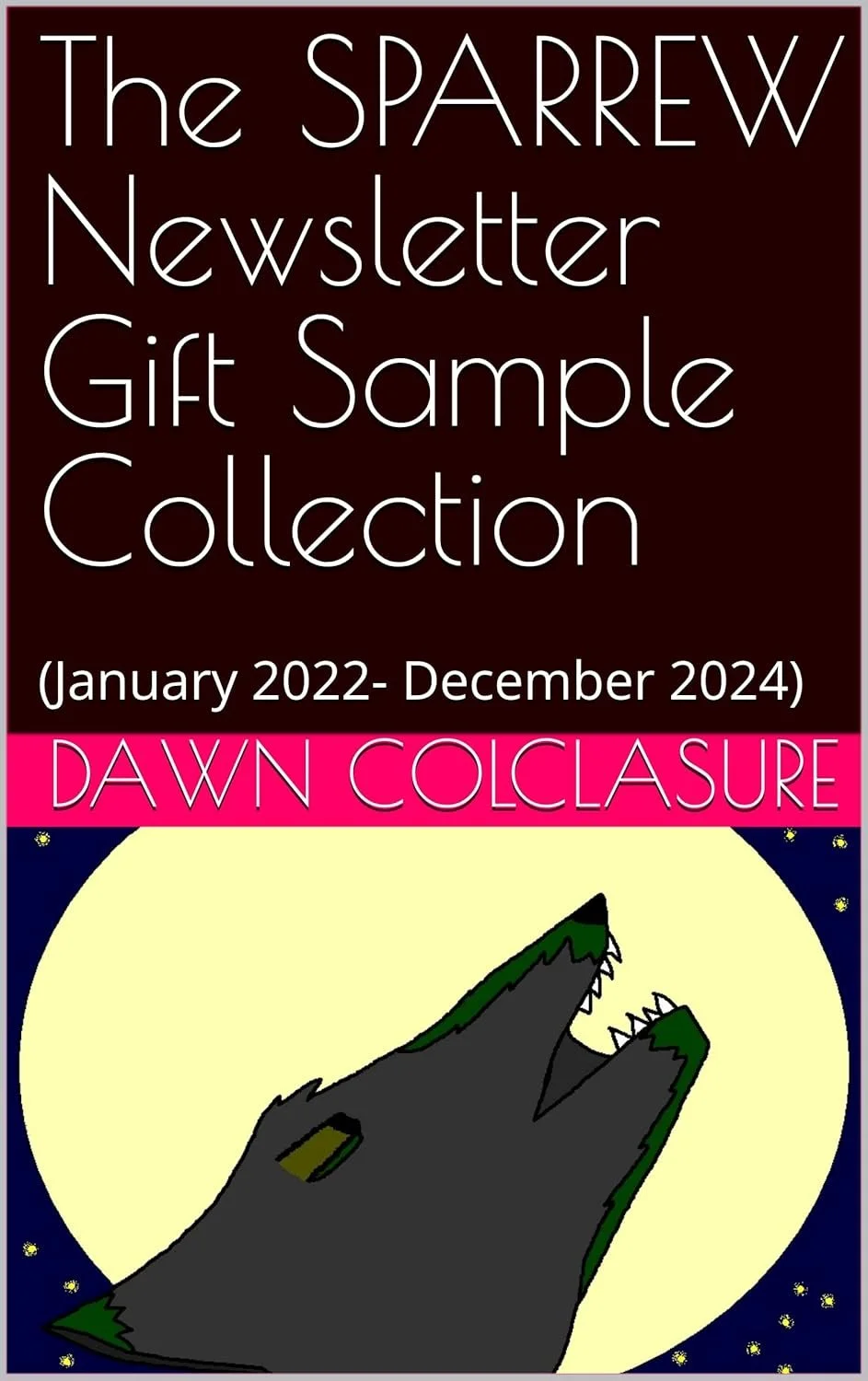Excerpt from The SPARREW Newsletter Gift Sample Collection
The following is an excerpt from the new ebook, The SPARREW Newsletter Gift Sample Collection: (January 2022- December 2024)
The following is written by Carolyn Howard-Johnson. This is included in the new ebook, among lots more by Carolyn as well as different forms of content published in The SPARREW Newsletter from January 2022 to December 2024.
You can purchase this ebook here.
All purchases of this ebook will support the SPARREW Newsletter and SPARREW Books.
“Trip-You-Up Words”
Copyright © 2010 by Carolyn Howard-Johnson
adapting / adopting: These are good words to start this booklet with because it’s often words that differ by only one letter that give us trouble. When we type them wrong, they’re hard to spot. This is your reminder to watch these two and others that are similar. Pay even more attention to them if you know their meanings.
adverse / averse: Some of the words in this booklet trip us up because we’re rarely warned about them or because our minds make our ears hear what it thinks they should hear. Even though these two words come from the same root and are similar in meaning, adverse means that something is harmful or has a negative connotation. We are not adverse to an idea; we are averse to it. We are opposed to it. Adverse describes the condition of something. Averse is more about how we feel about it. So we may be averse to doing something because it presents adverse conditions.
advice / advise: I sometimes think the misuse of these words has more to do with thoughtless typing than with misunderstanding their uses. But not always. Advice is a noun. Advise is a verb. Here’s an example: “I sensed she wanted me to advise her, so I gave her this astute advice: ‘Drop the guy.’”
aesthetic / esthetic: Most experts agree that esthetic is a “variable of aesthetic.” According to Webster, esthetic has to do with mere sensation. Aesthetic is closer to the original Greek and connotes a meaning more closely related to beauty or sensitivity to art. It is also more commonly used in both the US and Britain. The two are so closely related it seems foolish to stray from aesthetic when it may give you extra points in a gatekeeper’s subconscious rating system.
all tolled / all told: This is one of those situations where our instincts work better than thinking too hard. You and I both might think told and then start analyzing . . . and evaluating . . . and mulling and decide on tolled. Stop! It is told. Go for it!
although / though: These two words are pretty much interchangeable. Although, is a bit more formal. Having said that, if you’re working on my zero-tolerance rule for getting your submissions past the nitpickiest of gatekeepers, use although in your cover letters, queries, and proposals.
Notice to those learning English as a second language: Do not use either of these words when in spite of or despite are preferable. See the despite or in spite of entry.
all together / altogether: The Germanic habit of pushing two words together to make one often gives us fits, especially when they’re sometimes used as two words. To decide which to use, we need to think about their meaning and how they’re being used in the sentence. Altogether is an adverb that means entirely. Things are altogether too long, too difficult, too boring. All together specifically refers to a group. “We are going all together.” Test this by putting the verb between the all and the together. We can all play together. We can all go together. We can all travel together. When you can juggle the words like this and make them sound right, you can unjumble them back to play all together, go all together, travel all together.
among / amongst: Style guides and dictionaries tend to disagree on this one. Here’s your zero-tolerance rule for American English. Skip amongst altogether. You other English-speakers? Have at it.
anxious / eager: You’re eager to learn new things. You get anxious when a friend coaxes you into going for your first parachute jump. Big difference. You can find style guides that tell you to use them any old way you want, but it’s not wise when the gatekeepers are looking.
auger / augur: Rarely will you (or your editor) need this. However, when the occasion arises—and you know it—you’ll be considered really, really good at what you do. Auger is a hole-piercing tool. Augur is to predict.
